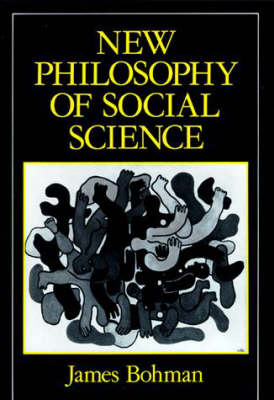Under the influence of postempiricism, the philosophy of science has changed enormously in recent years. New Philosophy of Social Science provides a clear and useful overview of the new synthesis that has taken place. Bohman argues for a theoretical and methodological pluralism grounded in an account of the nature of the objects of social theory, which are necessarily indeterminate and open ended: the new, postempiricist philosophy of social science "must find rigor within indeterminacy. "Bohman's position, that you can start from actual practices in the social sciences, accept the fact that they will always contain indeterminacy and ambiguity, and yet be able to construct viable norms, is buttressed by a number of case studies. These include examples drawn from rational choice theory, ethnomethodology, and the theory of communicative action. In the process, Bohman describes the status of such issues as causality, rules, interpretation, holism, and social criticism. The argument is not tied to a specific theoretical point of view, although it takes the program of the Frankfurt School as an indication of the path toward a proper philosophy of the social sciences.James Bohman is Associate Professor in the Department of Philosophy at St.
Louis University.
- ISBN10 0262521830
- ISBN13 9780262521833
- Publish Date 26 August 1993 (first published 31 October 1991)
- Publish Status Active
- Publish Country US
- Publisher MIT Press Ltd
- Imprint MIT Press
- Format Paperback (US Trade)
- Pages 280
- Language English
